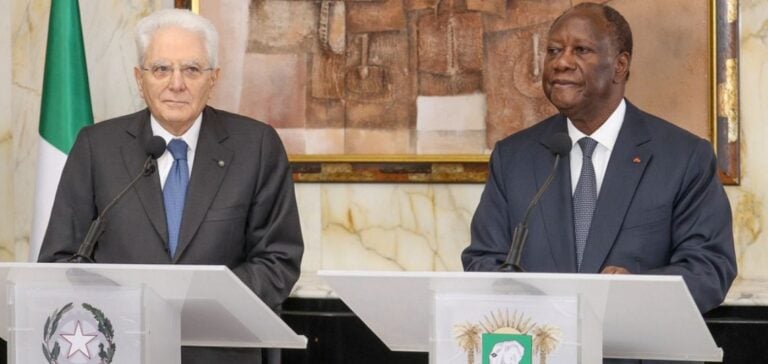On Wednesday April 3, Italian President Sergio Mattarella visited Côte d’Ivoire for talks with his counterpart Alassane Ouattara. Discussions focused on energy cooperation between the two countries, as well as security issues in the region.
A strategic energy partnership
“We have a collaboration in the energy sector with our respective companies Eni and Petroci, which have discovered two major (oil and gas) deposits, making Côte d’Ivoire a player in this field,” Mattarella explained in Abidjan. This cooperation marks a turning point, particularly with the start-up of the “Baleine” field by Eni and Petroci at the end of August, which could produce up to 150,000 barrels/day of oil and 200 million cubic feet/day of gas. Eni CEO Claudio Descalzi recently revealed the discovery of the “Calao” field, estimated to hold between 1 and 1.5 billion barrels of oil.
Security situation and energy impacts
Concerns over the political and security situation in the Sahel were also addressed, with both heads of state expressing their concern at the worsening jihadist violence and political instability. This discussion reflects recognition of the need for a concerted, international approach to tackling the region’s security challenges, which have a direct and indirect impact on energy and development issues.
Mattarella’s visit marks an important moment in the development of relations between Italy and Côte d’Ivoire, highlighting shared challenges and opportunities. By focusing on energy cooperation, the two nations are moving towards a stronger partnership.






















